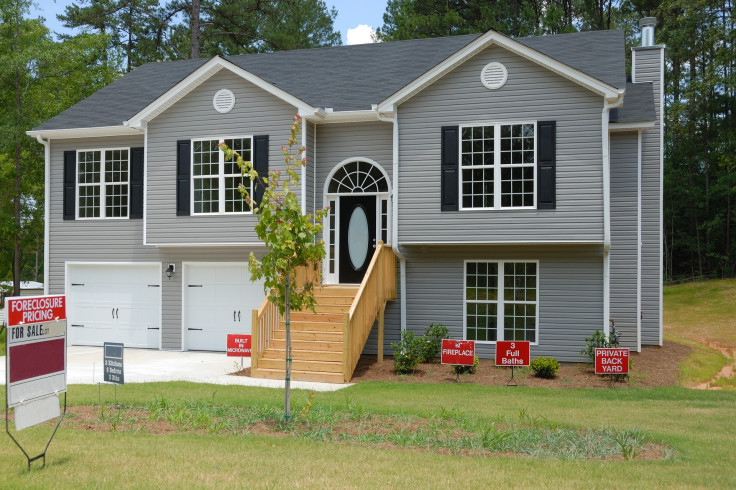Washington State's Controversial Home Loan To Offer Up To $150K To Minorities Only—White People Need Not Apply!

KEY POINTS
- To qualify, you've got to belong to specific minority groups like Black, Hispanic or Native American
- The State's Housing Finance Commission claims they're just trying to reverse 'racial disparities in home ownership.'
Washington State has recently rolled out a controversial housing program that offers prospective homeowners loans of up to $150,000 at 0% interest. However, the program has sparked widespread debate due to its eligibility criteria, which are based exclusively on race.
Eligibility Criteria: Who Qualifies?
Launched on July 1, the Covenant Homeownership Program aims to combat racial discrimination by assisting first-time homebuyers from specific minority groups, such as Black, Hispanic, or Native American, while excluding white people and other groups. In addition to meeting racial criteria, applicants must have a household income at or below the local median income to qualify.
The program is part of the state's 2023 Covenant Homeownership Act, which targets individuals with "deep roots" in Washington. This means that applicants or their family members must have lived in the state before April 1968, the year the Fair Housing Act was passed.
Addressing Historical Discrimination
According to the program's website, the criteria are "intentionally narrowly tailored" to address the ongoing impacts of historical discrimination. The website explains that while many racial, ethnic, and religious groups in Washington faced unjust housing discrimination, the Covenant program focuses on those groups that continue to show much lower homeownership rates compared to the general white population. However, the program acknowledges that data is limited when it comes to documenting the lasting impacts of discrimination on other groups, such as Jewish residents.
Eligible applicants can apply for 0% interest loans through their lenders to help fund down payments and closing costs. If approved, the loan is funded by a $100 fee on recorded real estate documents, and repayment is not required until the homeowner sells or refinances the property.
Controversy and Criticism
The Covenant Homeownership Program has been criticised significantly, with some labelling it as "blatant reverse discrimination." Social media has been flooded with backlash, with one user on X writing, "WTF? It's affirmative action for housing that most still can't afford." Another user commented, "New homeownership assistance program for everyone other than white people. Thanks, @WaHouseGOP. You never fail to screw us".
Critics argue that the program unfairly excludes certain groups, while defenders maintain that it is a necessary step to address historical wrongs and close the racial homeownership gap. The program's website clarifies that it does not represent a formal reparations effort but is "one small effort to remedy past and ongoing discrimination and its impacts on access to credit and homeownership for BIPOC and other historically marginalised communities in Washington state".
Historical Context
A study sponsored by Washington found that both the federal government and state and local authorities contributed to housing discrimination in the state. Historical examples include the forced removal of Native Americans from their lands, the exclusion of Black people during the 1800s, and the incarceration of Japanese Americans and others in the 1900s. Despite various efforts by Washington to increase homeownership, significant disparities continue to exist throughout the state.
Washington State's new home loan program offers up to $150,000 to minority groups only, excluding white applicants, sparking controversy and debate over reverse discrimination.
According to a report from the Daily Mail, in 2022, only 32% of Black people and 48% of Hispanic people owned homes in Washington, compared to 68% of White people. Steve Walker, executive director of the state's Housing Finance Commission, stated that "race-neutral approaches ... aren't closing the racial homeownership gap."
Funding Challenges
The Covenant Homeownership Program is funded by a $100 fee on recorded real estate documents. However, the program has faced challenges in meeting its funding goals. Since January, the state has collected over $20 million, significantly less than the $75 to $100 million projected to accrue yearly. The slow accumulation of funds is attributed to a sluggish housing market, where fewer people buy and sell homes.
With the current funding, the state can only support about 130 down payment loans of $150,000 each. This has raised concerns about the program's long-term sustainability and its ability to meaningfully impact closing the racial homeownership gap.
© Copyright IBTimes 2025. All rights reserved.






















